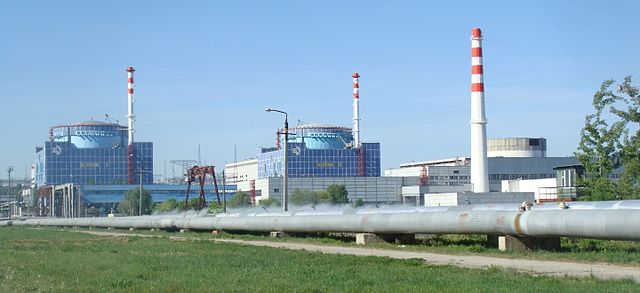The Dukovany nuclear power plant. (Photo: INSP)
Elektrárna Dukovany II (EDU II), a subsidiary of Czech utility ČEZ, has received final bids for the construction of a fifth reactor at the Dukovany plant, as well as nonbinding bids for three additional units to be sited at Dukovany and at Temelín, the Czech Republic’s other nuclear power facility. (Dukovany currently houses four Russian VVER-440/V213 pressurized water reactors, while Temelín is home to two VVER-1000/V320s.)
A close-up of the ALTEMIS monitoring device.
(Photo: Brad Bohr/SRNL)
Researchers at Savannah River National Laboratory (SRNL), in concert with Lawrence Berkeley National Laboratory, Massachusetts Institute of Technology, Pacific Northwest National Laboratory, and Florida International University, are leading the Advanced Long-Term Environmental Monitoring Systems (ALTEMIS) project to move groundwater cleanup from a reactive process to a proactive process, while also reducing the cost of long-term monitoring and accelerating site closure.
A spent nuclear fuel transportation container. (Photo: DOE)
Fusion systems company SHINE Technologies has notified the Nuclear Regulatory Commission that it intends to submit a license application to build and operate a pilot used nuclear fuel recycling facility.
The U.S. Army Corps of Engineers is safely cleaning up the former Maywood Chemical Works FUSRAP site in New Jersey.
USACE District Commander Mathew Luzzatto (right) is shown a map of the FUSRAP Maywood Superfund site in New Jersey in February 2023. (Photo: Nayelli Guerrero/USACE).
It is the 1940s in Maywood, N.J. A new residential community has sprouted up, and the homeowners want to beautify their front lawns, so they go to a nearby property to gather some fresh topsoil. Little did they know that they’re helping to plant the seeds for one of the largest and most high-profile environmental cleanup projects in the nation.
Fabricated Z1 heat source in transfer port. (Photo: Zeno Power)
Zeno Power, a developer of commercial radioisotope power systems (RPSs), announced on October 26 that it has completed the design, fabrication, and testing of its Z1 strontium-90 heat source. According to Zeno, they have tested the first commercially developed radioisotope heat source and reached a key milestone for Zeno to begin delivering RPSs to customers in 2025.
NEA director general William Magwood (left) and EPRI senior vice president Neil Wilmshurst finalize EPRI support for the joint WISARD project. (Photo: NEA)
The Nuclear Energy Agency has announced a new collaboration with the Electric Power Research Institute on an upcoming project that will focus on waste management strategies for small modular reactors and advanced nuclear energy systems.
Rep. Jeff Duncan (Image: House.gov)
At a legislative markup session last week, a House Energy and Commerce subcommittee approved 17 energy bills for consideration by the full E&C committee, including 12 measures to boost and streamline the deployment of nuclear power. The nuclear-related bills cleared the subcommittee by voice vote with bipartisan support.
“Our shared goal in this committee is to advance bipartisan, durable policy that will expand nuclear energy and its benefits for the nation,” said Rep. Jeff Duncan (R., S.C.), chair of the E&C’s Energy, Climate, and Grid Security Subcommittee, in his opening remarks on October 24. “Chair Rodgers, ranking members Pallone and DeGette, and I sent a bipartisan request for information to a variety of stakeholders this past April. Based on feedback from this request and the hearings we’ve had since, it’s clear that more can be done to modernize the Nuclear Regulatory Commission and Department of Energy to advance nuclear energy in this country.”
Indian Point nuclear power plant. (Photo: Daniel Case)
The Nuclear Regulatory Commission hasgranted a request by Holtec Decommissioning International (HDI) to revise the emergency preparedness plan for the Indian Point Energy Center. Reflecting the reduced risk of a radiological emergency at a decommissioning power reactor site, the exemption removes the requirement that HDI maintain a 10-mile emergency planning zone around the plant.
The Kakrapar nuclear power plant. (Photo: India’s Department of Atomic Energy)
The initial loading of nuclear fuel into the Kakrapar-4 reactor core has begun, the Nuclear Power Corporation of India Ltd. has announced. Permission for fuel load was granted by India’s Atomic Energy Regulatory Board “after carrying out stringent safety and security reviews,” according to the NPCIL.
Vermont Yankee’s segmented reactor vessel head is lowered into a custom-built package for transportation and disposal. (Photo: Orano)
Currently, the Nuclear Regulatory Commission is overseeing 17 nuclear power plants that are undergoing active decommissioning. For 10 of those plants, the NRC licenses have been transferred, either through sale or temporary transfer, from the plant owner and operator to a third party, nonutility company for decommissioning. To be profitable, those companies are decommissioning the nuclear plants as expediently as they safely can, while still protecting workers and the environment, using proprietary techniques and processes.
Concept art of the eVinci accelerator hub, soon to be home to engineering and licensing operations, testing, prototype trials, business development, and sales. (Image: Westinghouse)
To help speed up commercialization of its eVinci microreactor, Westinghouse Electric Company this week launched a new design and manufacturing facility for the project near downtown Pittsburgh, Pa. Located in the borough of Etna, the 87,000-square-foot eVinci “accelerator hub” will be home to engineering and licensing operations, testing, prototype trials, business development, and sales, Westinghouse said in an October 24 announcement, adding that the facility will include manufacturing space for producing the “innovative heat pipes that are central to the eVinci technology.”
Khmelnytskyi nuclear power plant in Ukraine. (Photo: Wikimedia)
Explosions near the Khmelnytskyi nuclear power plant in western Ukraine early Wednesday shattered windows at the facility and temporarily cut off power to some off-site radiation monitoring stations, the International Atomic Energy Agency reported on October 25.
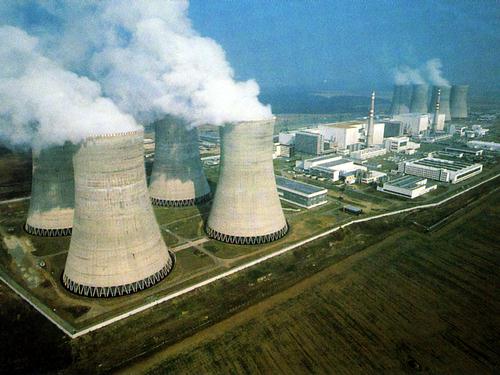



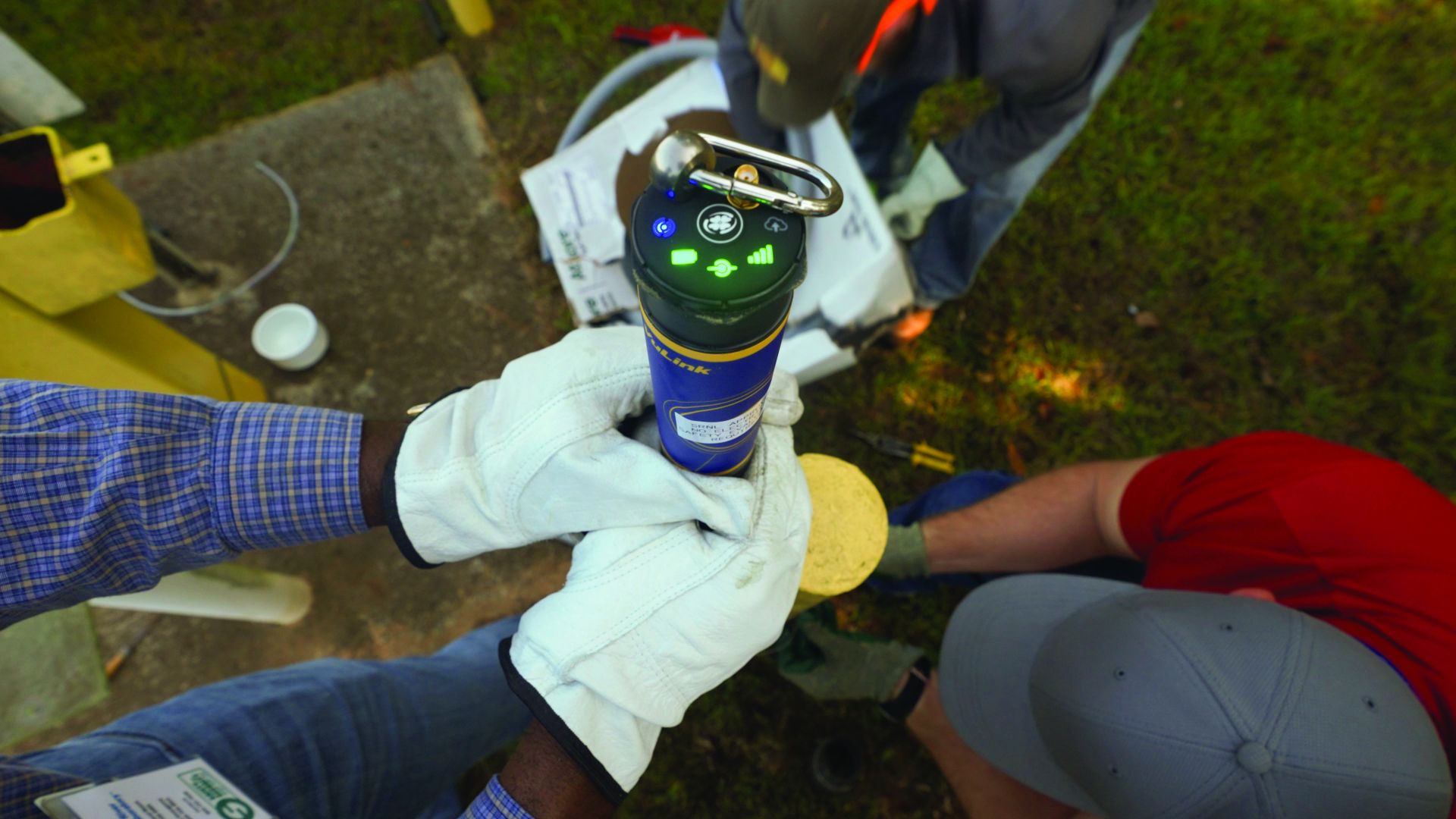
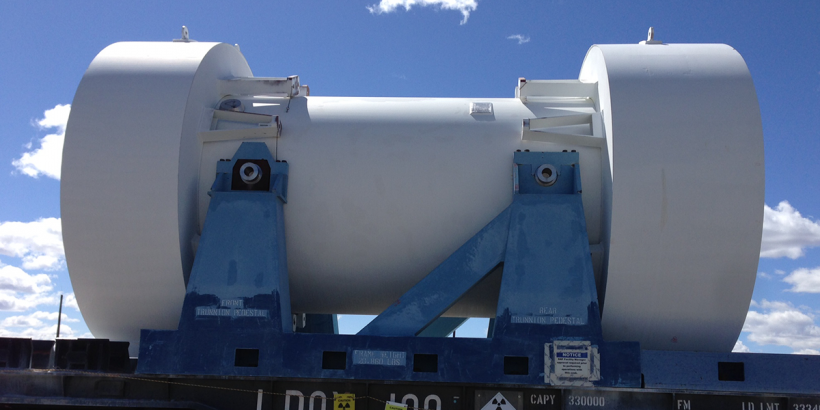





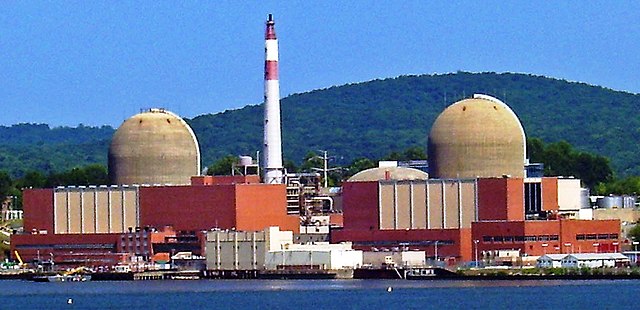

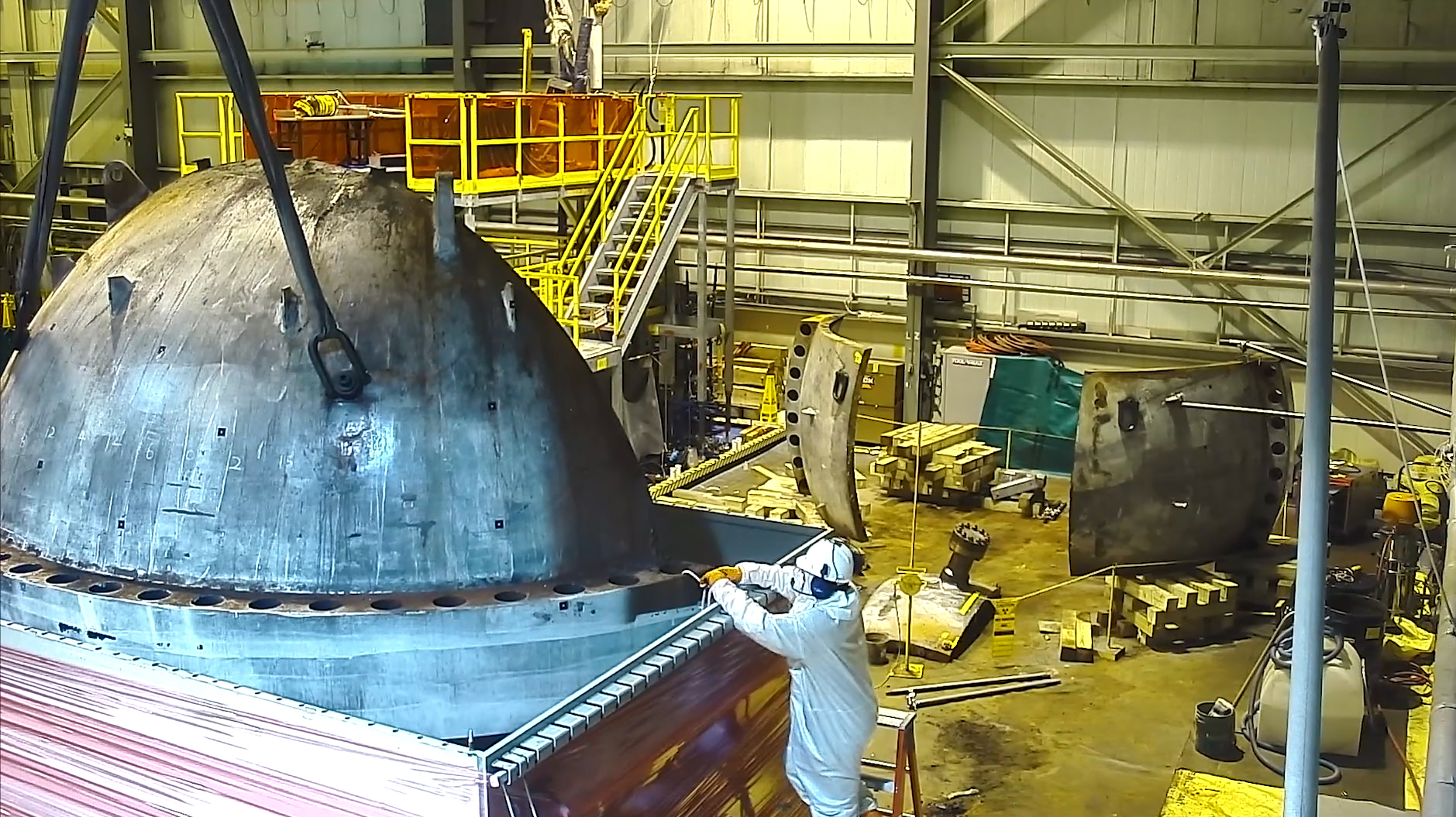
.jpg)
